
How to Create Cold Process Soap Recipes
Creating soap recipes
After a few batches of soap, almost every soap maker will want to try their own recipes. The easiest way to customize a soap recipe is to use different additives, changing the look and smell of the soap.
Making a soap recipe
If you change the amount of oils in a soap recipe, it is already a completely new recipe. When preparing a soap recipe, it is necessary to know the properties of the fats used and their saponification number (SAP). The saponification number indicates how much lye is needed to completely saponify the fats. The table with saponification numbers is given below.
The best soap recipe combines different fats and oils. The three most commonly used soap fats are coconut oil, palm oil, and olive oil. Coconut oil gives the soap good cleansing properties and foaming, palm fat makes it harder and longer lasting. The function of olive oil is to soften the skin. These properties can also be given to the soap by other fats: babassu and castor oil also make the soap bubble well, with lard you can add strength to it, and instead of olive oil, sunflower and soybean oil can be used as a softener. The widest choice is for moisturizing oils, which can make up 5-10% by weight of the soap.
The rule of thumb is that at least 40% of soap oils should be solid fats, but there are exceptions, such as the recipe for Castilian soap, which uses only olive oil.
Here's a simple example of how to make a soap recipe
1. Choose the soap ingredients and set their proportions:
125 g coconut oil
150 g palm oil
200 g olive oil
25 g avocado oil
2. Determine the saponification number of each ingredient:
coconut oil 0.183
palm oil 0.142
olive oil 0.135
avocado oil 0.133
3. Find the amount of caustic soda needed to saponify each ingredient:
coconut oil 0.183 x 125 g = 22.875 g
palm oil 0.142 x 150 g = 21.3 g
olive oil 0.135 x 200 g = 27 g
avocado oil 0.133 x 25 g = 3.325 g
The required amount of lye is 74.5 grams.
4. Discounting lye
As fully saponified soap is not very moisturizing, the amount of lye must be reduced so that some of the oils remain in the soap in its natural form. My recipes have mostly 5% unsaponified oils. Different recipes contain 5-15% unsaponifiable fat. If the proportion of unsaponifiable fats is very high, problems with the preservation of the soap may occur.
To reduce the amount of lye by 5%, multiply it by 0.95 (95%).
74.5 x 0.95 = 70.775 or 71 grams of lye.
If you want more unsaponified oils, for example, a 10% reduction, the amount of caustic soda should be multiplied by 0.9.
5. Calculating the amount of water
The optimal amount of water is 38% by weight of fats. With less water, caustic soda is more difficult to dissolve.
500 g x 0.38 = 190 g
Amount of ater can be a bit lower
Here is the finished recipe:
190 g water
71 g lye
125 g coconut oil
150 g palm oil
200 g olive oil
25 g avocado oil
Online soap calculator
A soap calculator is a good guide when preparing a soap recipe. Here is one I have been using: https://www.soapmakingfriend.com/soap-making-recipe-builder-lye-calculator
SAP values
This table shows how much caustic soda it takes to turn fat into soap.
If you do not find a suitable oil or grease in the table, contact the raw material manufacturer or dealer for information.
|
Aloe butter |
0.179 |
|
apricot kernel oil |
0.139 |
|
avocado oil |
0.133 |
|
avocado butter |
0.133 |
|
babassu oil |
0.175 |
|
emu oil |
0.135 |
|
chicken fat |
0.137 |
|
hemp oil |
0.138 |
|
castor oil |
0.128 |
|
rosehip seed oil |
0.133 |
|
coconut oil |
0.183 |
|
cucumber seed oil |
0.135 |
|
lamb fat |
0.138 |
|
linseed oil |
0.135 |
|
linseed oil |
0.135 |
|
peanut oil |
0.137 |
|
sweet almond oil |
0.139 |
|
corn oil |
0.137 |
|
macadamia nut oil |
0.139 |
|
almond butter |
0.134 |
|
mango butter |
0.136 |
|
beeswax |
0.067 |
|
hazelnut oil |
0.135 |
|
Monoi de Tahiti |
0.182 |
|
poppy seed oil |
0.138 |
|
wheat germ oil |
0.130 |
|
olive oil |
0.135 |
|
palm kernel oil |
0.176 |
|
palm oil |
0.142 |
|
plum seed oil |
0.138 |
|
olive pomace oil |
0.134 |
|
sunflower oil |
0.135 |
|
rapeseed oil |
0.124 |
|
hazelnut oil |
0.139 |
|
sesame oil |
0.134 |
|
shea butter |
0.128 |
|
soybean oil |
0.136 |
|
beef fat |
0.143 |
|
grape seed oil |
0.129 |
Related posts
 Multicolor Soap from Melt and Pour Soap Base
Multicolor Soap from Melt and Pour Soap Base


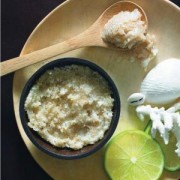
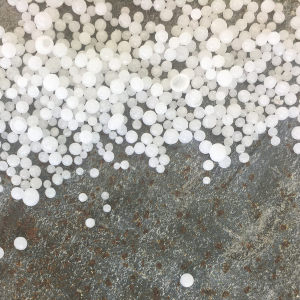
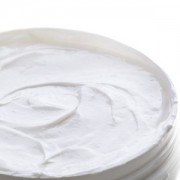
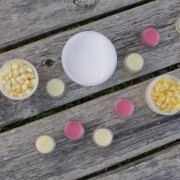
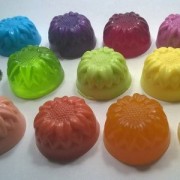



Leave a comment
Log in to post comments
Comments
Saippuoituminen
By: Sirpa lindblad On 01/31/2024Hei...olipa hyvin selitetty nuo asiat ,tässä ne nyt tuli - kun olen englanninkielisistä videoista katsellut...ei aina ole varma olo ymmärsikö oikein...pitääpä lukea muutkin kirjoitukset täältä :)
Seebistumisarv searasv
By: Janika Kull On 10/06/2023Milline on searastav seebistumisarv? 0,193 või 0,203?
Replied by: Helen Idarand On 10/06/2023